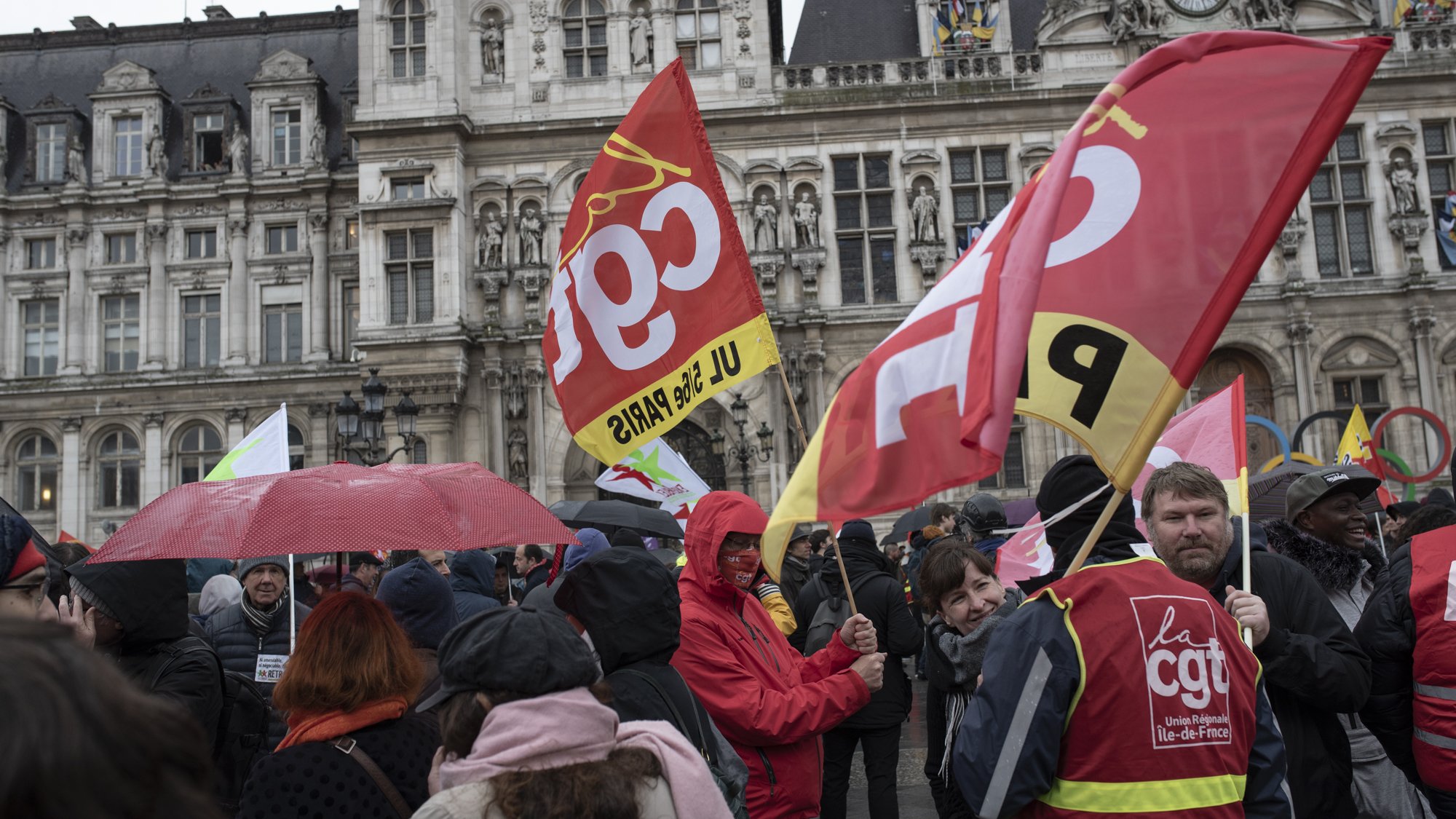Spontaneous protests broke out in France on April 14, Friday, after the country’s Constitutional Council ratified the increase in the retirement age from 62 to 64, the most controversial aspect of the pension reforms pushed by the Emmanuel Macron-led government. Macron signed the bill into law early on Saturday.
Even though the Council struck down certain provisions of the bill, it also rejected the first version of the Referendum of Shared Initiative (RIP) on the implementation of the reforms. The proposal for the referendum was submitted by the MPs from the left-wing New Ecologic and Social Peoples Union’s (NUPES) coalition. The Constitutional Council will decide on a second RIP on May 3.
The coordination of the trade unions, which includes the General Confederation of Labor (CGT), called for protests to continue until the ‘reforms’ are rolled back A fresh round of protests is scheduled for May 1
On April 13, in the twelfth round of major mobilization, hundreds of thousands of people took part in 280 demonstrations and rallies across the country against the reforms, and demanded a referendum. At several places, the police attacked the protesters brutally.
The pension reforms were announced by French Prime Minister Elisabeth Borne on January 10 this year. They stipulate the phased raising of the retirement age in France from 62 to 64, at the rate of three months per year, from September 1, 2023 until 2030. In order to get a full-rate pension, workers will have to work for 43 years instead of the current 42. This provision will come into effect fully by 2027.
Read | Pension reform or Revolution! Crisis for the French Fifth Republic
Since January, massive protests have been organized against the reforms by trade unions and the left-wing coalition New Ecologic and Social Peoples Union’s (NUPES). On March 16, Prime Minister Borne invoked the emergency provision Article 49.3 of the constitution to bypass voting in the National Assembly and passed the law. The government managed to survive a vote of no-confidence on March 20 by just nine votes.
On April 14, Friday evening, Ian Brossat spokesman of the French Communist Party (PCF) said. “A bad reform does not become good once the Constitutional Council has validated it. It has no popular legitimacy. The only way out: social mobilization and the referendum.”
NUPES leader Jean-Luc Melenchon tweeted that “the decision of the Constitutional Council shows that it is more attentive to the needs of the presidential monarchy than to those of the sovereign people. The struggle continues and must gather its forces.”





